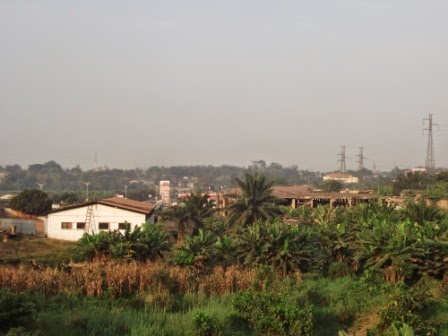Bamboo
is widely regarded as an excellent substitute for wood in housing. Its use in
construction has potential benefits in terms of sustainable use of timber
resources, economic savings in construction and high strength to material
weight ratios.
However,
bamboo housing in Ghana is relatively low, mainly due to lack of innovation and
appropriate technology for processing local bamboo species.
The
1st Bamboo Colloquium, sponsored by the Ministry of Environment,
Science, Technology and Innovation (MESTI) is on the theme “Bamboo Utilization
for a Greener Construction and Future in Ghana”.
 The
aim is to build capacity for bamboo utilization in Ghana under the second phase
of government’s action plan on the utilization of local raw materials in the
building and construction industry.
The
aim is to build capacity for bamboo utilization in Ghana under the second phase
of government’s action plan on the utilization of local raw materials in the
building and construction industry.
The
policy seeks to ensure that by 2015 at least 60 percent of indigenous raw
materials are used in the construction of school blocks, market stalls, public
toilets and affordable housing units.
Bamboo
is one of the indigenous raw materials for the housing industry. Others include
earth blocks, clay bricks, and pozzolana cement.
Dr.
Yahuza Gomda, Director of Science, Technology and Innovation at the Ministry, has
noted the increased use of durable local materials will reduce the import bill
on building materials, retail capital, create employment for the youth and revitalize
the environment.
 “Government
is really committed to this policy,” he said. “A lot of money has gone into
training; a lot of people have been training on how to use the local building
materials and a centre was built to train artisans at the Building and Road Research
Institute (BRRI)”.
“Government
is really committed to this policy,” he said. “A lot of money has gone into
training; a lot of people have been training on how to use the local building
materials and a centre was built to train artisans at the Building and Road Research
Institute (BRRI)”.
Ghana
faces an acute housing deficit of 1.7million units, especially in the urban
centers – the cost of housing development is excessively high as most materials
used are imported.
To
reduce such cost, there is growing concern for the integration of bamboo as a
material into building construction in Ghana.
This
is spearheaded by the Forestry Research Institute of Ghana of the Council for
Scientific and Industrial Research (FORIG-CSIR).
 Deputy
Director of FORIG, Dr. Stephen Adu-Bredu says bamboo’s fast rate of growth is
an advantage, hence the need to explore means to raise seedlings and sustain
plantation.
Deputy
Director of FORIG, Dr. Stephen Adu-Bredu says bamboo’s fast rate of growth is
an advantage, hence the need to explore means to raise seedlings and sustain
plantation.
“When
you take trees, it takes 10-20 years before you get the product but bamboo 3-5
years you get a lot and the rate of growth is so fast – immediately you cut, it
will be coppicing,” he observed.
Story by Kofi Adu Domfeh


























.JPG)

.JPG)











